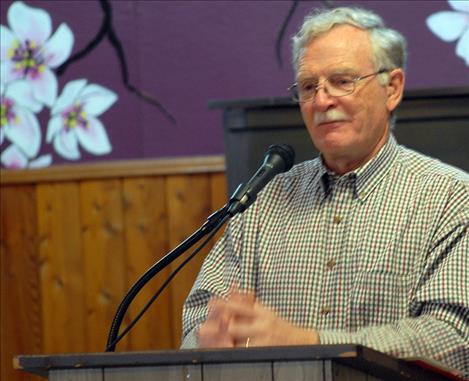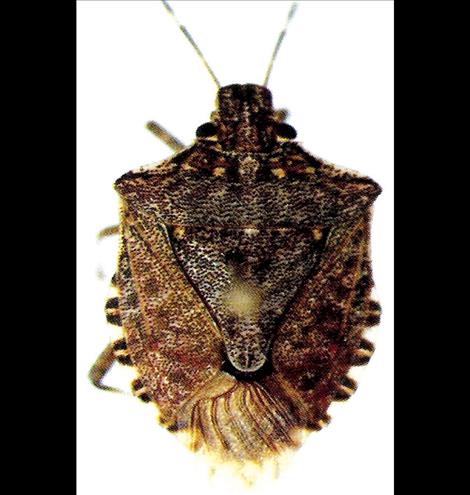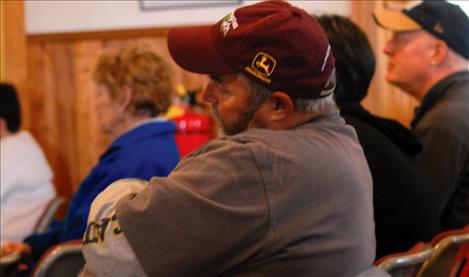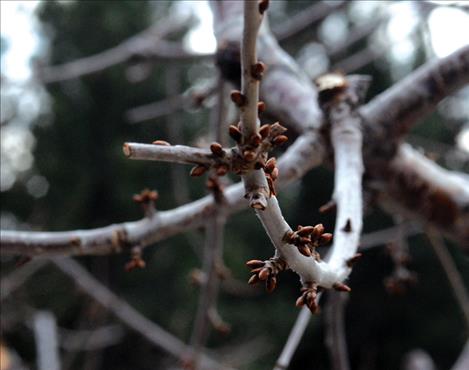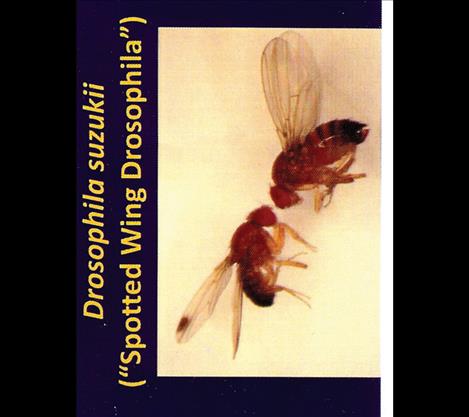Cherry guru speaks to Flathead growers
Hey savvy news reader! Thanks for choosing local.
You are now reading
1 of 3 free articles.
Flathead cherry trees are mostly pruned by now, allowing growers time to attend the Flathead Lake Cherry Growers 79th annual meeting held Saturday at the Yellow Bay Club House.
Keynote speaker Norm Guitzwiler, a respected Washington cherry grower and crop management consultant, gave the audience of cherry growers a glimpse into “what we see, what we hear from California, Oregon and Washington” regarding the 2015 cherry crop. Guitzwiler, a third generation orchardist and life-long resident of the Wenatchee Valley, said California didn’t get the “chilling hours” necessary for cherry growth, “so they’ll have problems setting a crop.”
He predicts the California crop will average one to two tons to the acre, a small crop.
While California didn’t have enough cool weather, Oregon’s cherry crop will likely suffer due to a hard frost in November of 2014. Guitzwiler said trees in the Hood River and The Dalles areas might come back, but might have to be removed. Despite the freeze, Oregon will have a cherry crop, about eight to 10 tons per acre.
“Idaho had bud development problems,” Guitzwiler said, and Washington, his home state, had a huge cherry crop last year and will probably have a lighter crop this year.
Guitzwiler reported on two new cherry pests — a new fruit fly drosophila suzukii, spotted wing drosophila, and the brown marmorated stink bug.
The cold doesn’t affect the drosophila, he said, they winter under the bark in trees and can reproduce several times per year. Guitzwiler said the only pesticide that works for the drosophila is Success, which isn’t registered in Montana. Brian Campbell, local Monson Fruit representative, said Entrust could be used.
“There are other products out there,” Guitzwiler said, “but Korea, China and Australia don’t like our research” because fruit treated with other products can’t be exported to these countries.
The brown marmorated stinkbug infects corn, wheat, fruit, and “we don’t have a way to control it,” he said. “If you see one, capture it, it’s important we look at it as a national pest.”
The stink bug injects its proboscis into the fruit or vegetable, sucks out the sugars and nutrients and starts decay, he explained.
Another cherry enemy is powdery mildew. Guitzwiler varies his method of controlling the mildew by using four different products. The first infection can be treated with a summer oil spray.
“Then you can even go back to the old standby — sulphur — which will burn (the mildew) down,” Guitzwiler said.
He advised users to be sure they put it on two weeks to 10 days before picking, since sulphur can be painful for the pickers if they get it in their eyes.
Temperatures should be below 80 degrees for application and not hotter than 85 degrees for the next three or four days.
Guitzwiler said the longshoremen’s strike on the west coast could affect shipping to the Pacific Rim, the destination of 40 percent of exported cherries. Many shipping companies have gone to ports on the east coast, so if the strike is settled, the ports will have to talk shipping firms into moving back to the west coast.
Later in the day, Guitzwiler demonstrated pruning on young cherry trees.
Also speaking the meeting were Bruce Johnson, president of the Flathead Lake Cherry Growers; Bob Nester, a meteorologist with the National Weather Service; and Jasmine Brown, who does federal certification and cherry orchard inspections.















